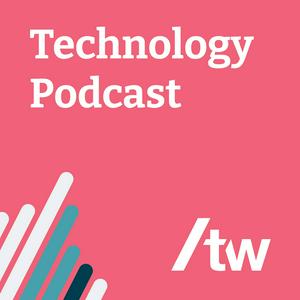In January 2026, Thoughtworks launched AI/works™, an agentic development platform. It promises to make the capabilities of AI agents a reality for the enterprise, helping in areas including understanding complex legacy code, forward engineering new software solutions and agent governance.
How, though, does it actually work in practice? And what does it mean for the organizations and teams Thoughtworks works with?
In this episode of the Technology Podcast, new host Rickey Zachary is joined by Bharani Subramaniam (CTO for Thoughtworks India and the Middle East) and Shodhan Sheth (Head of Enterprise Modernization, Platforms and Cloud) to discuss AI/works™, taking in how the platform emerged from a number of recent Thoughtworks projects to how it's delivering value to businesses today.
As well as an inside perspective on Thoughtworks' new platform, the episode also offers a deep and timely exploration of questions and challenges the rapid rise of AI agents in software engineering has surfaced across every part across industry.
Learn more about AI/works™: https://www.thoughtworks.com/ai/works


